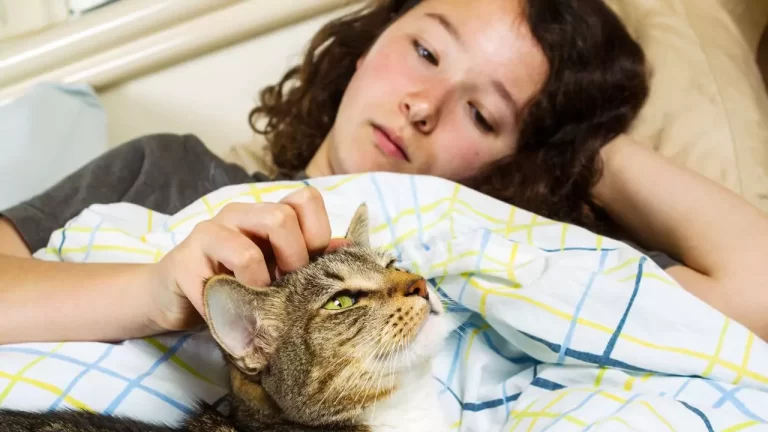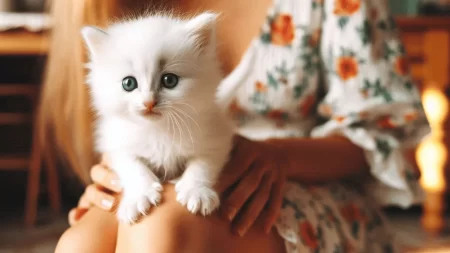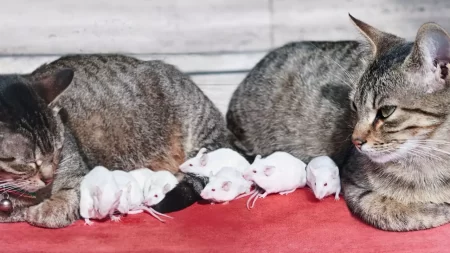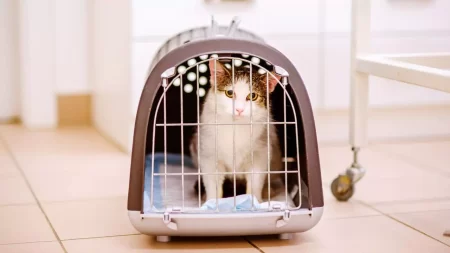Domestic cats, being crepuscular animals, tend to wake up at dawn, typically between 5 and 6 o’clock in the morning. This behavior aligns with their natural activity cycles, which are most active during the early morning and dusk. If your cat’s waking time precedes yours, establishing a consistent routine might help modify this behavior.
In line with their crepuscular nature, domestic cats are more active in the early morning and late evening. Cats are interesting because they can change their behavior schedules to match the schedules of the people they live with. This means that if you sleep at night, your cat will probably do the same. Many people let their cats sleep with them, which makes the relationship between the pet and its owner stronger.
Why Do Cats Wake Up Early?
There are several possible reasons why your cat may wake up early and demand your attention. Some of the most common ones are:
- They’re hungry. Cats have a fast metabolism and need to eat frequently throughout the day. If you feed your cat only once or twice a day, they may get hungry during the night and wake you up for food. This is especially true for kittens, elderly cats, or cats with medical conditions that affect their appetite.
- They lack routine. Cats are creatures of habit and thrive on consistency. If you have an irregular schedule or change your cat’s routine frequently, they may get confused and restless. They may not know when to expect food, playtime, or attention, and may try to wake you up to get what they want.
- They have excess energy. Cats are naturally curious and playful and need to exercise their body and mind daily. If your cat does not get enough stimulation during the day, they may have pent-up energy and boredom that makes them restless at night. They may wake you up to play with them or to explore the house and make noise.
Training Your Cat to Not Wake You Up
If your cat wakes you up too early, you may be tempted to give in to their demands and feed them, play with them, or cuddle with them. However, this will only reinforce their behavior and make them more likely to do it again. Instead, you should try to ignore your cat and not reward them for waking you up. Here are some tips to help you train your cat to not wake you up:
- Establish a consistent feeding schedule. Feed your cat at the same times every day, and avoid feeding them right before bed or right after you wake up. This will help your cat regulate their hunger and learn to expect food at certain times. You can also use an automatic feeder to dispense food at set intervals, so your cat does not rely on you for food.
- Provide daily playtime and interaction. Make sure your cat gets enough physical and mental stimulation during the day, so they are tired and satisfied at night. Play with your cat for at least 15 minutes twice a day, using toys that mimic their natural prey, such as feathers, mice, or lasers. You can also provide your cat with interactive toys, puzzles, or scratching posts that they can use when you are not around.
- Enrich their environment. Make your cat’s living space more interesting and comfortable, so they have something to do and explore at night. You can add cat trees, shelves, windows, or hiding places that your cat can access and enjoy. You can also leave some soft music or white noise on at night, to soothe your cat and mask any outside noises that may disturb them.
Medical Causes for Early Waking
Sometimes, your cat may wake up early due to a medical issue that affects their sleep quality or comfort. Some of the common medical causes for early waking are:
- Arthritis. Older cats may suffer from arthritis, which causes joint pain and stiffness. This may make them uncomfortable and restless at night, and they may wake you up to seek relief or comfort.
- Hyperthyroidism. Cats with hyperthyroidism have an overactive thyroid gland that produces too much thyroid hormone. This can cause symptoms such as increased appetite, weight loss, increased thirst, and increased activity. Cats with hyperthyroidism may wake up early due to hunger, thirst, or excess energy.
- Diabetes. Cats with diabetes have high blood sugar levels that affect their metabolism and organ function. This can cause symptoms such as increased appetite, weight loss, increased thirst, and increased urination. Cats with diabetes may wake up early due to hunger, thirst, or the need to use the litter box.
If you suspect your cat has any of these conditions or any other health problem that affects their sleep, you should consult your veterinarian and get them treated. This will not only improve your cat’s well-being but also your own sleep quality.







